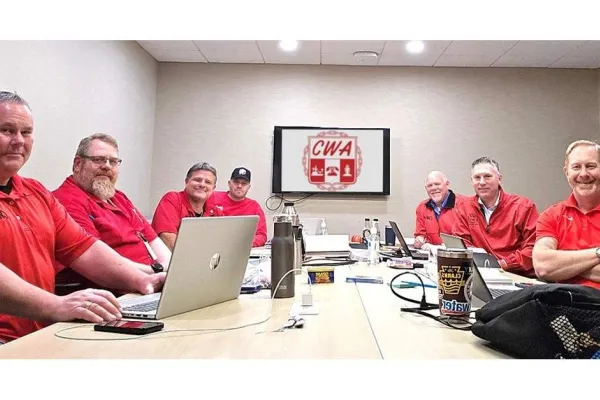April 1
United Mine Workers of America win 8 hour day - 1898
San Francisco laundry workers strike for wage increases and an eight-hour day - 1907
More than 2,000 workers strike the Draper Corp. power loom manufacturing plant in Hopedale, Mass., seeking higher wages and a nine-hour workday. Eben
S. Draper, president of the firm -- and a former state governor -- declares: "We will spend $1 million to break this strike" and refuses to negotiate.
The strike ended in a stalemate 13 weeks later - 1913
Unionized miners at West Virginia’s Coal River Colliery Co. (CRC) strike for union scale. CRC was an investment venture of the Brotherhood of Locomotive
Engineers (BLE), with shares owned by BLE members - 1924 (Source: Conflict at Coal River Collieries: The UMWA Versus the Brotherhood of Locomotive
Engineers, by Thomas J. Robertson & Ronald L. Lewis)
Strike of cotton mill workers begins in Gastonia, NC. During the strike, police raided the strikers’ tent colony; the chief of police was killed.
The strike leaders were framed for murder and convicted, but later freed - 1929
400,000 members of the United Mine Workers strike for higher wages and employer contributions to the union’s health and welfare fund. President
Truman seizes the mines - 1946
40,000 textile workers strike in cotton and rayon mills of six southern states, seeing higher pay, sickness and accident insurance, and pensions - 1951
Longest newspaper strike in U.S. history, 114 days, ends in New York City. Workers at nine newspapers were involved - 1963
Major league baseball players begin what is to become a 13-day strike, ending when owners agreed to increase pension fund payments and to add
salary arbitration to the collective bargaining agreement - 1972
Brotherhood of Sleeping Car Porters merge with Brotherhood of Railway, Airline & Steamship Clerks, Freight Handlers, Express & Station Employees - 1978
Eleven-day strike by 34,000 New York City transit workers begins, halts bus and subway service in all five boroughs before strikers return to work with
a 17 percent raise over two years plus a cost-of-living adjustment - 1980
United Cement, Lime & Gypsum Workers Int’l Union merges with Boilermakers, Iron Ship Builders, Blacksmiths, Forgers & Helpers - 1984
Brotherhood of Locomotive Engineers granted a charter by the AFL-CIO - 1989
The U.S. minimum wage increases to $3.80 per hour - 1990
The United Mine Workers of America dedicates the John L. Lewis Mining and Labor Museum at Lewis’ boyhood home in Lucas, Iowa - 1990
The U.S. minimum wage increases to $4.25 per hour - 1991
More info & ammo for unionists is available
online from Union Communication Services.
🚨🟠📢 CWA / AT&T 2026 “Orange” Mobility Contract Bargaining Report #9 📢🟠🚨

